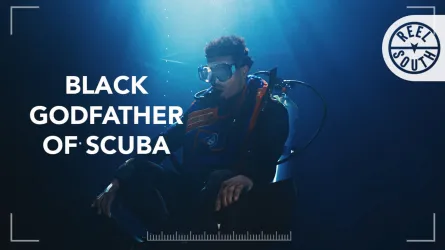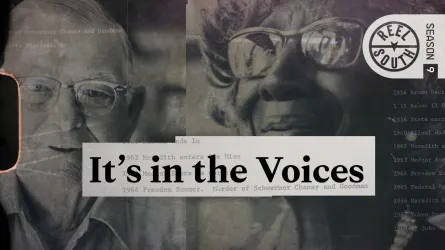During these unsettling times, local journalism often offers residents support through information, but so many small-town newspapers are fighting to stay alive. Filmmaker Gabriela Cavanagh captures the Charleston Gazette-Mail's, a family-owned, Pulitzer Prize-winning local newspaper in West Virginia, fight for survival in "Sustained Outrage." We connected with her to learn the behind-the-scenes moments of the film.
The interview has been edited for clarification.
What inspired you to make your film?
From the very beginning, the inspiration for our film was the local journalists who were profoundly committed to their community. While many of them had offers to work at bigger papers, they all chose to stay in the place they called home, become experts in their fields, hammering home issue after issue, working tirelessly until they saw a real change in their community. We began developing the film right after the 2016 election when trust in the media felt like it was reaching new heights — this story felt like the antidote to that.
How did you get connected to your subject?
My producing partners, James Doolittle and Jason Cherkis, reached out to the newspaper in early 2017. Unsurprisingly, newspapers are not ones to limit access!
Were there any parts you wish you could have included in the film? If so what were they?
There are so many moments I wish we could have included in the film. Our original intention was to make a feature documentary, following the reporters of the course of a year. When the bankruptcy happened, that all changed and the film had to become a short with the existing footage we had. As a result, a lot of storylines had to be cut — the contentious relationship between Governor Jim Justice and the paper, the editor Rob Byers’ family coal mining background, reporter Ken Ward’s in-depth investigations into the oil and natural gas industry, the list goes on. The editing process was extremely difficult as we had to come to terms that the scattered footage we had on these stories just wasn’t strong enough to include.
My favorite line that we had to cut comes from legendary reporter Ken Ward: “Your best friend in your life is the person who is willing and able to tell you the things you don’t want to hear. And that’s what a newspaper has to do, is tell readers the things they really don’t want to hear.” I think it sums up the film perfectly.
Were there parts with very interesting backstories that weren't totally relayed in the final film? Or what was your favorite behind-the-scenes moment?
Yes! I wish we could have gone more into depth into Eric Eyre’s investigation — his fantastic book, Death in Mud Lick: A Coal Country Fight Against the Drug Companies That Delivered the Opioid Epidemic tells the story in great detail and I encourage those who liked the film to follow up with his book.
What do you hope people learn/hope they take away from your film?
On the micro-level, I hope the film helps people reflect on their own local newspaper. On a macro level, I hope it raises awareness on the state of local journalism and the threats it faces now more than ever — whether it’s from consolidation throughout the industry, dwindling staff, declining ad revenue and readership.
Is there anything else you'd like to share with the Reel South audience?
Since the film was completed, there have been many updates at the Charleston Gazette-Mail. Many reporters and another editor have been let go, and the main reporters in the film have resigned and launched the own nonprofit news outlet supported by the American Journalism Project and Report for America.
What advice would you give other filmmakers or others interested in documentary film?
My advice to other filmmakers is: stick with your gut. If you believe there’s a story, trust your instincts and see it through.
Can you complete this sentence: "What defines you..."
What defines you…is the truth.
Category
Share


